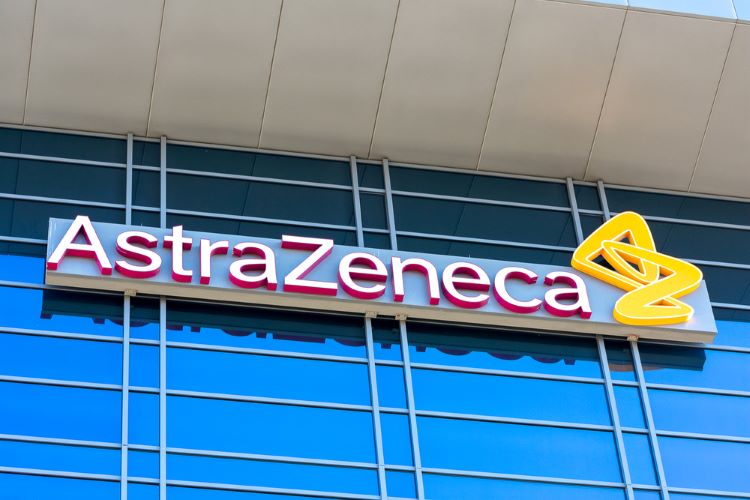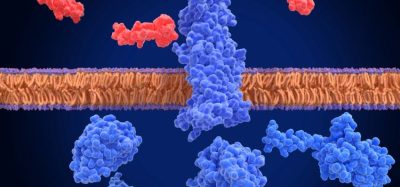Roche touts ‘best-in-disease’ potential for anti-hypertensive zilebesiran
Posted: 1 September 2025 | Dominic Tyer (European Pharmaceutical Review) | No comments yet
While AstraZeneca’s first-in-class candidate baxdrostat marks phase III hypertension win at ESC 2025.
![Roche logo sign lit up [Credit: testing/Shutterstock.com].](https://www.europeanpharmaceuticalreview.com/wp-content/uploads/Roche-3-750x500.jpg)
![Roche logo sign lit up [Credit: testing/Shutterstock.com].](https://www.europeanpharmaceuticalreview.com/wp-content/uploads/Roche-3-750x500.jpg)
[Credit: testing/Shutterstock.com].
Trial results for a twice-yearly anti-hypertensive injection and a pill for hard-to-control high blood pressure were among the studies presented at this weekend’s European Society of Cardiology (ESC) Congress 2025.
The KARDIA-3 trial of Roche and Alnylam’s injectable zilebesiran demonstrated clinically meaningful reductions in office systolic blood pressure at month three with continuous control through month six, adding to the Phase II body of evidence already accrued from KARDIA-1 and KARDIA-2.
An RNAi anti-hypertensive given as a twice-yearly subcutaneous basis, zilebesiran was being evaluated in patients with uncontrolled hypertension and high cardiovascular (CV) risk who already take two to four standard of care antihypertensives.
KARDIA-3 showed clinically meaningful placebo-adjusted reductions of office systolic blood pressure from a 300mg dose of zilebesiran at its month three primary endpoint (-5.0 mmHg; p=0.0431) with sustained benefits continuing to month six (-3.9 mmHg; 95% CI: [-8.5, 0.7]). However, no additional benefits from the higher 600mg dose at month three were found.
Although the overall KARDIA-3 study did not meet its pre-specified definition for statistical significance, which Roche and Alnylam said was because of a multiplicity statistical testing approach, it did identify the most beneficial patient population for treatment.
Despite current treatment options, up to 80 percent of people with hypertension do not achieve adequate blood pressure control putting them at higher risk of cardiovascular events”
The partners said that, as seen in KARDIA-2, KARDIA-3’s results also support combining zilebesiran with a diuretic, a commonly used antihypertensive. In an analysis of patients that were on diuretics and had a baseline BP >140 mm Hg, the placebo-adjusted reduction was -9.2mmHg; (-17.3, -1.2) at month three and -8.3mmHg (-16.4, -0.2) at month six.
Pushkal Garg, Alnylam’s Chief Research and Development Officer, said: “The KARDIA-3 results demonstrate that a single dose of zilebesiran provided continuous control of blood pressure over the 24-hour period, day and night, for up to six months, while also showing the potential to improve cardiac and renal biomarkers independent of blood pressure reduction.
“Taken together with the full KARDIA Phase II programme data, these findings reinforce that targeting angiotensinogen – the most upstream precursor of the RAAS – with zilebesiran offers a differentiated approach that has the potential to improve blood pressure control and cardiovascular outcomes.”
Over 1.2 billion people around the world are thought to have hypertension, which is the primary cause of, and number one modifiable risk factor for, cardiovascular disease, but many struggle to manage their disease.
Levi Garraway, Roche’s Chief Medical Officer and Head of Global Product Development, said: “Despite current treatment options, up to 80 percent of people with hypertension do not achieve adequate blood pressure control putting them at higher risk of cardiovascular events. Therefore, additional treatment options are needed.
“Zilebesiran has the potential to become a best-in-disease treatment for many patients with uncontrolled hypertension. Its blood pressure-lowering effects and twice-yearly dosing could reduce the risk of serious health complications and death.”
Roche and Alnylam will now move zilebesiran into a Phase III cardiovascular outcomes trial for people with uncontrolled hypertension that is expected to begin before the end of this year.
The ZilebEsiraN CardIovascular OuTcome Study in Hypertension (ZENITH) will involve around 11,000 patients and evaluate zilebesiran (300mg) every six months compared to placebo in patients with uncontrolled hypertension with either established CV disease or at high risk for CV disease on two or more antihypertensives, one being a diuretic.


Credit: Michael Vi / Shutterstock.com
AstraZeneca’s baxdrostat in hard-to-control hypertension
Meanwhile, AstraZeneca’s baxdrostat demonstrated statistically significant and clinically meaningful reductions in systolic blood pressure in patients with hard-to-control hypertension at ESC 2025.
The treatment is a potential first-in-class, highly selective aldosterone synthase inhibitor (ASI) that targets one of the hormones driving elevated blood pressure and increased cardiovascular and renal risk.
The BaxHTN Phase III results demonstrate baxdrostat’s potential in tackling one of the toughest challenges in cardiovascular care, which is hypertension that is hard to control despite multiple therapies”
The Phase III BaxHTN study involved participants with uncontrolled and resistant hypertension who received baxdrostat or placebo on top of standard of care.
It found a 2mg dose of baxdrostat lowered systolic blood pressure by 15.7 mmHg (9.8 mmHg placebo-adjusted) from baseline at week 12, and was generally well tolerated. The 1mg dose still managed a 14.5 mmHg (8.7 mmHg placebo-adjusted) reduction from baseline.
The trial also met secondary endpoints that included demonstrating a durable long-term blood pressure reduction with the 2mg dose, and both doses of baxdrostat leading to greater reductions in diastolic blood pressure as well as nearly tripling the odds of patients reaching their target SBP <130 mmHg compared with placebo.
Sharon Barr, Executive Vice President of BioPharmaceuticals R&D at AstraZeneca, said: “The BaxHTN Phase III results demonstrate baxdrostat’s potential in tackling one of the toughest challenges in cardiovascular care, which is hypertension that is hard to control despite multiple therapies.
“We look forward to advancing our regulatory filings for baxdrostat with health authorities in the months ahead, in addition to rapidly progressing a robust clinical development programme across indications where aldosterone plays a key role, including chronic kidney disease and heart failure prevention.”
About the author
Dominic Tyer is the Editor of European Pharmaceutical Review. You can connect with him at LinkedIn or follow him on Bluesky.









